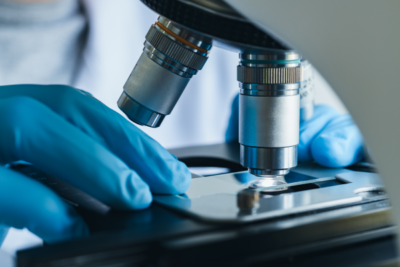Medical Lab Testing and Public Health
Medical laboratory testing plays a crucial role in public health and disease prevention. These tests provide valuable information that helps healthcare professionals diagnose diseases, monitor treatment effectiveness, and identify potential health risks. This article explores the significance of medical laboratory testing in safeguarding public health and highlights its impact on disease prevention.
Early Disease Detection:
Many diseases, such as cancer and diabetes, may not exhibit noticeable symptoms in their initial stages.
Medical laboratory testing offers numerous benefits with the primary benefits of ability to detect diseases at an early stage, help medical specialist to perform an accurate diagnosis, and effective treatment of diseases. It involves analyzing various biological samples, such as blood, urine, and tissue, to identify potential health issues. By identifying risk factors, such as genetic predispositions or lifestyle choices, it enables individuals to take proactive measures to mitigate potential health risks.
Monitoring Treatment Effectiveness:
Medical laboratory testing also plays a vital role in monitoring the effectiveness of treatments. For example, in patients undergoing chemotherapy, regular blood tests can assess the impact of the treatment on cancer cells and monitor the patient’s overall health. Similarly, for individuals with chronic conditions like diabetes, laboratory tests help determine the effectiveness of medication and lifestyle modifications in managing blood sugar levels.
Additionally, regular testing helps monitor the effectiveness of ongoing treatments, ensuring optimal patient care. Moreover, it plays a pivotal role in preventing the spread of infectious diseases by enabling early detection and timely intervention.
Identification of Health Risks:
Medical laboratory testing helps identify potential health risks and allows for preventive measures to be taken. For instance, lipid profile tests can assess cholesterol levels, indicating the risk of cardiovascular diseases. By identifying high cholesterol levels, healthcare providers can recommend lifestyle changes, such as dietary modifications and exercise, to reduce the risk of heart disease.
Similarly, genetic testing can identify inherited conditions, enabling individuals to make informed decisions about their health and take preventive actions.
Disease Surveillance and Outbreak Control:
Laboratory testing plays a critical role in disease surveillance and outbreak control. During infectious disease outbreaks, such as influenza or COVID-19, laboratory tests are essential for diagnosing infected individuals, tracking the spread of the disease, and implementing appropriate control measures.
By identifying infected individuals promptly, healthcare authorities can isolate them, trace their contacts, and prevent further transmission. This proactive approach helps contain outbreaks and protect public health.
Public Health Screening Programs:
Medical laboratory testing is an integral part of public health screening programs. These programs aim to identify specific health conditions in a population and provide early interventions. For example, newborn screening tests are conducted shortly after birth to detect genetic disorders that may not be apparent at birth but can cause severe health problems if left untreated. Similarly, screening programs for cervical cancer, breast cancer, and sexually transmitted infections help identify individuals at risk and facilitate early treatment.
As technology advances, so does medical laboratory testing. Exciting emerging trends, such as the integration of artificial intelligence and machine learning algorithms, have the potential to revolutionize disease prevention. These advancements can enhance the accuracy and efficiency of testing procedures, leading to improved public health outcomes.
In conclusion, medical laboratory testing plays a vital role in safeguarding public health and preventing diseases. It is crucial to recognize the benefits it offers, including early detection, accurate diagnosis, and effective treatment. By staying informed about emerging trends and addressing common concerns, we can continue to promote public health and disease prevention effectively.
Payvand Clinical & Specialty Laboratory has not hesitated to offer any cooperation in any way to provide a broad range of Laboratory tests. we are honored to provide the indescribable efforts of our officials and technical and non-technical staff in order to quickly, accurately, and timely diagnosis and the guarantee point of decision for our valuable customers.
References:
- World Health Organization. (2017). Laboratory Testing for the Diagnosis of HIV Infection
- Centers for Disease Control and Prevention. (2020). Laboratory Testing for the Diagnosis of COVID-19.
- American Cancer Society. (2021). Cancer Screening Guidelines.
- World Health Organization. (2019). Laboratory Services in Primary Care: A Framework for Implementation.
- National Institutes of Health. (2020). The Role of Laboratory Testing in Disease Management.


